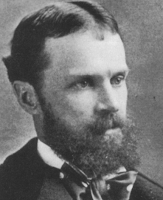"When we became alcoholic, crushed by a self-imposed crisis we could not postpone or evade, we had to fearlessly face the proposition that either God is everything or else He is nothing. God either is or He isn't. What was our choice to be?
["Alcoholics Anonymous," page 53.]
 |
| Paris Peace Conference, 1919 |
The First World War (which was known as "the Great War," because it was assumed to be 'the war to end all wars') ended in an armistice or truce, and not a surrender. Afterwards, the representatives of 29 countries met in Pais and hammered out a number of treaties (the "Paris Peace Treaties") that imposed conditions on the defeated nations, including crippling war reparations, that virtually assured that the peace wouldn't last. It didn't.
During the course of the ensuing Second Word War, the leaders of the main Allied Powers met and decided their would only be one condition for ending the war, that being the "unconditional surrender" of the Axis Powers (principally Germany, Italy and Japan).
 |
| Japan's "Unconditional Surrender," 1945 |
It's been said, that Japan, in particular, as the last combatant to surrender, faced the toughest conditions of all in implementing its "unconditional surrender," Their emperor, considered a living God by the people of Japan, had to go on the radio (in itself unheard of) and admit defeat; all of Japan's weapons were then inventoried and turned over to its former enemies; a new constitution was written for it by the Allied Powers (including a provision that it would never rearm); and those leaders that had led Japan into war (who hadn't killed themselves) were tried and executed.
And what was the result? Aid flowed into Germany and Japan as part of the Marshall Plan, and within scant years, each was amongst the richest and most productive economies in the world, and they in turn became not only functioning democracies, but trusted and crucial allies of their former enemies.
Admitting complete defeat, and the
unconditional surrender of the right to manage and care for one's own life, is, of course what is necessary for one to enjoy the full promise that the 12 Steps hold out to the newcomer.
 |
| "Who cares to admit complete defeat?" |
"Who cares to admit complete defeat?," we read in the opening chapter of the
Twelve Steps and Twelve Traditions. An admission of
complete defeat, we read, is necessary because, "We perceive that it is only through utter defeat (that we are) able to take our first steps towards liberation and strength." Like Germany and Japan, we are asked to make an unconditional surrender, in order to access the help that A.A. and its sister programs so gladly offer. ("The war is over," as my first sponsor's sponsor so often said "And the good news is . . . you lost," he always added.)
Then, if we can answer this call for an "unconditional surrender" in the affirmative, we face a number of interrelated questions that are really a subset of that first and all-important questions as to whether we are
completely defeated, have "hit bottom," and have admitted that we are "powerless over alcohol" and that "our lives have become unmanageable."
" . . . (F)ew people," we read, " will sincerely try to practice the A.A. Program unless they have hit botton. For practicing A.A.'s remaining eleven Steps means the adoption of attitudes and actions that almost no alcoholic who is still drinking can dream of taking. Who wishes to be honest and tolerant? Who wants to confess his faults to another and make restitution for harm done? Who cares anything about a Higher Power, let alone meditation and prayer? Who wants to sacrifice time and energy in trying to carry A.A.'s message to the next sufferer? No, the average alcoholic, self-centered in the extreme, doesn't care for this prospect - unless he has to do these things in order to stay alive himself."
If we
can answer these questions in the affirmative, then we are truly in a position to finally let go of our old ideas and attitudes (our old
thoughts and
ways of thinking) in order to let that "unsuspected inner resource," which we all have, guide our thoughts and our actions. (See the
Spiritual Experience appendix.)
Yet a lifetime of desperately trying to manage the unmanageable -
i.e., trying to
manage life - is going to be a hard habit to kick. And, so, Step Three is all about the
practice of letting go of our need to act upon the first fear-driven thoughts that pop into our heads, and in relying upon the deeper God-inspired thoughts of our higher consciousness to guide our words and actions.
"It is when we try to make our will conform with God's that we begin to use it rightly," we read in Step Three of the Twelve Steps and Twelve Traditions. "To all of us, this was a most wonderful revelation. Our whole trouble had been the misuse of will power. We had tried to bombard our problems with it instead of trying to bring it into agreement with God's intention for us. To make this increasingly possible is the purpose of A.A.'s Twelve Steps, and Step Three opens the door."
The "whole purpose of A.A.'s Twelve Steps" is to get us to exercise our will in conformity with God's will? That is a powerful statement. And, if God is indeed "
everything" rather than "
nothing," as we read at page 53 in the 'Big Book' of
Alcoholics Anonymous, this must mean that we have to bring our will into conformity with the will of the Whole, with the will of "life" itself. That's a tall order. How is it possible?
Thankfully, each of us has a conscience - and are capable of being conscious of that conscience - and, therefore, each time we are about to say something or do something (or refrain from doing or saying something) that will bring us into conflict with the will of the Whole (or the will of God), we are capable of feeling the pangs of conscience. as expressed in our emotions .
In such instances, we will feel wounded pride, greedy, angry, lustful, gluttonous, envious, or tired and slothful, to utilize the range of emotions that go along with the "seven deadly sins" that are discussed later in the
Twelve and Twelve. In short, we will again begin to suffer the pangs of "anxious apartness" that arises each time the "self" (or the"ego") feels threatened and seemingly
needs to express itself in action or words. And that's where the rest of the "
practice" of Step Three kicks in.
At the very end of Step Three in the
Twelve Steps and Twelve Traditions, we read that it is, indeed "easy to begin the practice" of Step Three," for it very much a
spiritual practice which is every bit as important to our long-term recovery as is our meditation practice, or our practice of taking a daily inventory. It is through this Third Step "practice," that in each time of "emotional disturbance or indecision, we can pause, ask for silence, and in the stillness" recite the Serenity Prayer.
For it is only in the deeper, higher consciousness of the "God of our own understanding" that serenity is to be found. It is only in going to this deeper, higher consciousness, that we become able to display the "courage" to change the only "thing" that we can - that is, the level of our consciousness. And, it is only in knowing that there is within us each the lower, normal self-consciousness of the human ego, and the higher, deeper consciousness of God, that we begin to actually display "wisdom."
In short, it is in making our decisions about what to say or do (or not say or do) based on this higher, deeper God-consciousness that we begin the practice of "letting go" of our egoic, self-consciousness, and "letting (the) God" of our higher consciousness run the show.
Life is, in fact, unmanageable by our lower, egoic "selves;" and, yet, it requires no management when we are attuned in consciousness to the Higher Power of the Whole, the Ground of Being, or just simply, God. "The war is over," then. "And the good news is . . . you lost!"



















































